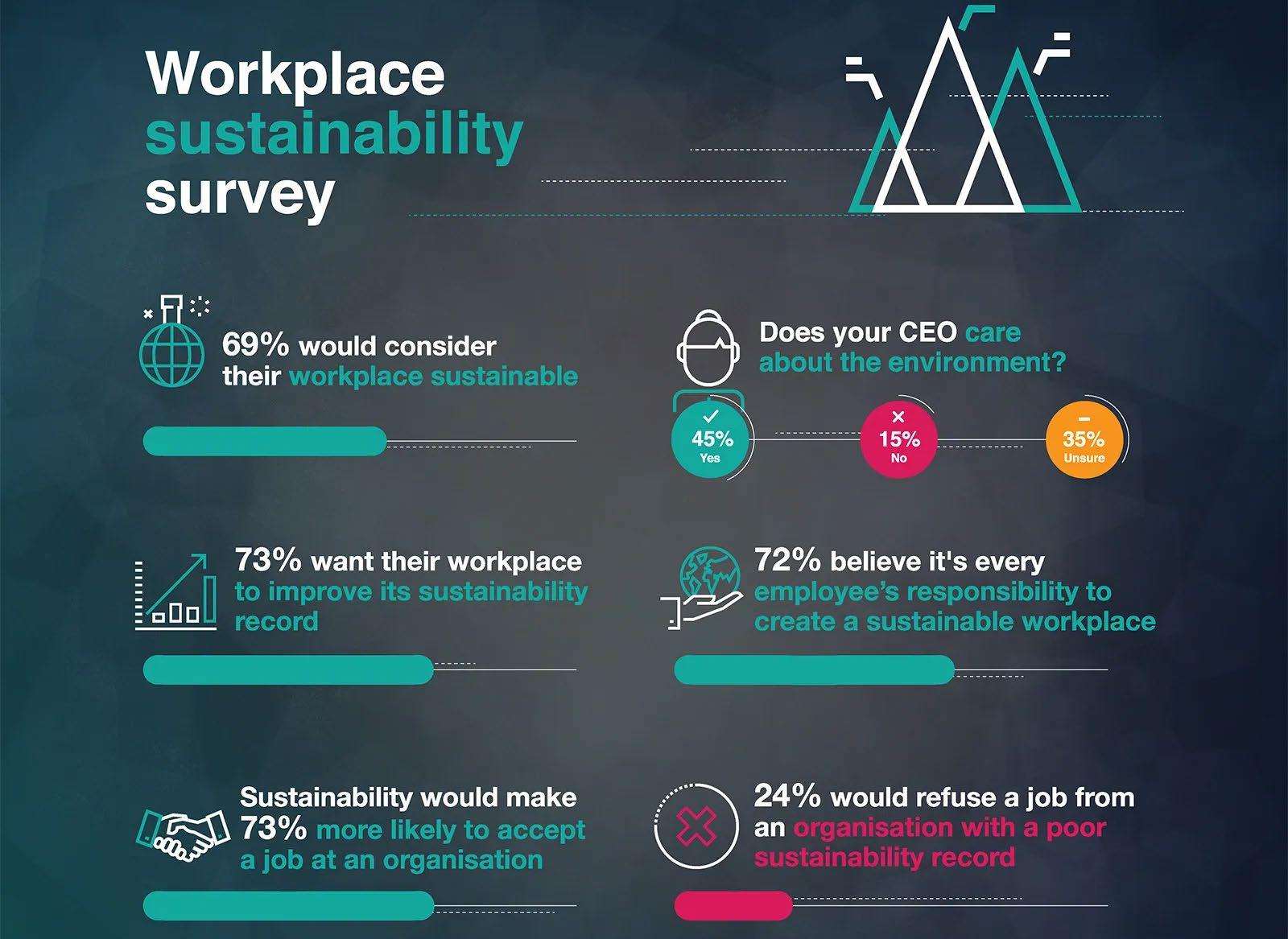
4 minute read
Sustainability Key To Attracting and Retaining Workers
Balancing Sustainability and Employee Retention For Business Success
By Raine St.Claire
In the ever-changing business landscape, there is a growing dynamic interplay between employers and employees. Employers prioritise adaptable and resilient workforces, recognising the strategic importance of thriving in evolving markets. On the other side, employees are increasingly motivated by a sense of purpose and are scrutinising how companies embrace sustainability. This evolving relationship is driven by the need for adaptability and sustainability, giving a competitive edge to companies that embrace these principles.
The connection between intensified sustainability efforts and employee retention is seamless. By adopting strategies that enhance sustainability, businesses offer their staff a clear sense of purpose and mission, leading to greater loyalty and dedication.
The Significance Of Green Credentials
A recent survey of 1 000 UK office workers revealed that a significant number would decline a job offer from a company with a poor sustainability record. This survey underscores the importance of robust sustainability policies in both attracting and retaining employees. Roughly threequarters of respondents expressed a desire for stronger organisational sustainability commitments.
Around one-third of those surveyed feel their workplace falls short of environmental sustainability standards, with nearly a quarter indicating they would reject a job offer from a company with a questionable environmental track record.
When asked about who should take responsibility for enhancing workplace sustainability, 72% believe that all employees should be held accountable, with 24% naming the CEO, and 17% pointing to the HR department.
Green Leadership For Business Success
A sustainable mindset should start at the top, with leaders demonstrating a commitment to the cause and implementing policies that promote sustainability at work. Establishing environmentally friendly practices is not only beneficial for business; it also serves as a strong motivator for attracting and retaining employees.
The most popular sustainability activity in workplaces is recycling office waste, mentioned by 50% of respondents. Approximately a quarter of respondents cited policies to reduce paper usage, encourage staff to reduce energy consumption, enhance energy efficiency, reduce travel, and promote reusable kitchenware.
How To Foster A Green Company Culture
Start by asking employees for their input and implement actions like using energyefficient equipment, opting for renewable energy sources, reducing waste, and recycling. Encourage eco-friendly transportation options, such as carpooling, public transit, or remote work, to reduce daily commuting. Promoting sustainability need not be challenging or costly. Considering that more than 15 tons of plastic find their way into the ocean every minute, prohibiting single-use plastic in the workplace emerges as a practical stride toward sustainability.
The Connection Between Employee Retention And Sustainability
Retaining employees is one of the most significant challenges facing businesses today. High turnover rates negatively impact productivity and morale, affecting overall organisational performance. Employee retention goes beyond keeping employees on the payroll; it is about creating an engaging environment that encourages employees to stay. Research indicates that 86% of young people would stay longer at a company with robust sustainability credentials.
Understanding The Benefits Of Employee Retention
1. Cost Savings
Replacing employees is expensive, with estimates suggesting it can cost 6 to 9 months’ worth of their salary, covering recruitment, training, and lost productivity. Retaining employees significantly reduces these costs.
2. Knowledge and Experience
Long-term employees bring valuable knowledge and experience that is hard to replace. Losing them creates a knowledge gap and disrupts workflow, impacting overall organisational effectiveness.
As employees increasingly seek alignment between their values and their organisation’s practices, employers must ensure that their workforce remains content, engaged, and productive through internal sustainability initiatives. Prioritising employee development demonstrates a commitment to staff wellbeing and organisational growth.
By adopting meaningful sustainable practices, organisations demonstrate their dedication to creating a positive impact. This not only attracts employees who want to be part of this mission but also enhances their brand, reputation, and core values.
Furthermore, Environmental, Social, and Governance (ESG) efforts can significantly enhance employee retention in an era where environmental and social issues take centre stage. Employees seek assurance that their workplace actively promotes diversity and sustainability.
Empowering Employees For Long-Term Success
Investing in employees is a wise strategy for long-term success. High turnover leads to financial losses and expertise gaps, making employee retention crucial. Offering opportunities for personal and professional growth increases confidence, efficiency, and effectiveness while preventing burnout. Promoting work-life balance, supporting mental health, and valuing diversity and inclusion are vital for employee well-being.
By aligning profits with employee well-being and creating an environment that fosters growth and loyalty, companies can remain competitive and retain valuable staff.

Sources: IEMA | Sensiba | Topline










